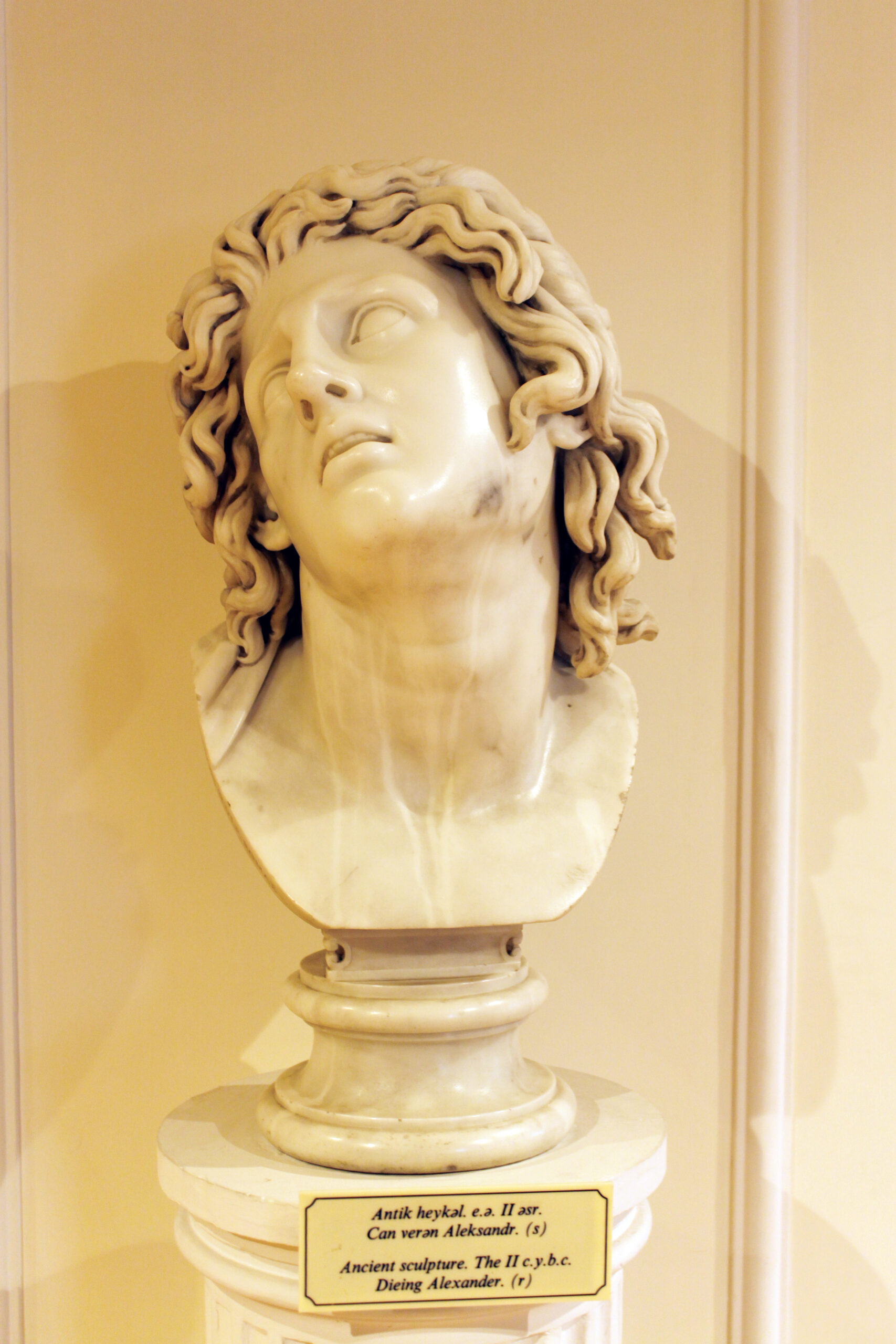Alexander the Great, one of history’s most renowned military commanders and rulers, passed away on June 10, 323 BCE. His death marked the end of an extraordinary era characterized by his ambitious conquests and visionary statesmanship. Born in 356 BCE, Alexander’s reign began in 336 BCE after the assassination of his father, King Philip II of Macedon.
With an insatiable thirst for power and a desire to emulate the military triumphs of Greek heroes like Achilles, Alexander embarked on a mission to conquer and unite the known world under his rule. By the time of his demise at the age of 32, his empire stretched from Greece and Egypt in the west to India in the east. This vast empire, once ruled by a fierce and charismatic leader, encompassed an array of diverse cultures, religions, and civilizations.
Despite his military achievements, Alexander’s death was not due to a heroic battle but rather to an illness that befell him in Babylon. The specific cause of his demise remains a subject of debate, as historical accounts offer varying explanations ranging from malaria to poison. Regardless of the precise cause, Alexander’s death heralded a period of uncertainty and instability, leading to the eventual fragmentation of his vast empire.
While his life may have been relatively short, Alexander’s legacy endures to this day. His visionary leadership and strategic brilliance left an indelible mark on the ancient world, shaping political ideologies and inspiring future conquerors and leaders. The empire he built, known as the Hellenistic era, witnessed the spread of Greek culture, language, and traditions far beyond the borders of Macedonia.
Alexander’s death marked the end of an era defined by his extraordinary military campaigns, ambition, and vision. His untimely passing left a power vacuum and a world forever changed by his conquests. Despite his controversial methods and the mixed opinions surrounding his rule, Alexander the Great’s death represented the closing chapter of an influential and captivating historical narrative that continues to captivate the imagination of countless individuals, sparking curiosity and inspiring further exploration into the life and legacy of this iconic figure.
More About : When Did Alexander The Great Die
Introduction:
Alexander the Great, one of history’s most legendary and influential figures, passed away during his ambitious military campaign at the age of 32. His untimely death in 323 BC, while leaving his empire unconquered, ignited a series of power struggles that changed the course of ancient history. This article aims to delve into the circumstances surrounding Alexander’s death and shed light on its subsequent impact.
I. The Mysterious Demise of a Conqueror:
A. Alexander’s prolonged illness:
1. Symptoms and possible causes explained.
2. Theories of illness, including Malaria, West Nile Virus, or Typhoid Fever.
B. Decline and deterioration:
1. Alexander’s weakened physical state and its impact on his decision-making.
2. The strain on his body due to relentless wars and long campaigns.
C. Perspectives on assassination:
1. Conspiracy theories suggesting foul play.
2. Historical accounts that dismiss conspiracy theories.
II. The Aftermath of the King’s Passing:
A. Influential generals and commanders:
1. Division within the empire and the dispersion of Alexander’s loyal followers.
2. The rise of Ptolemy, Seleucus, Antigonus, and Cassander as key figures.
B. Wars of the Diadochi:
1. Struggles for power and territory among the diadochi, or Alexander’s successors.
2. The Battle of Ipsus as the pinnacle of the conflicts and its consequences.
C. Cultural changes and enduring legacy:
1. The expansion of Greek culture and Hellenistic influence.
2. The establishment of famous cities, such as Alexandria, as cultural and intellectual hubs.
III. Historical Evaluation and Modern Implications:
A. Alexander’s achievements and impact on geopolitics:
1. The vastness of his empire and its significance in ancient history.
2. The blending of Persian and Greek cultures under his rule.
B. Lessons learned from Alexander’s death:
1. The importance of succession planning and the dangers of power vacuums.
2. The frailty of even the most powerful leaders.
C. Modern controversies and debates:
1. Assessing the ethical aspects of Alexander’s conquests.
2. Criticisms of his often ruthless strategies and treatment of conquered populations.
Conclusion:
Alexander the Great’s death marks the conclusion of a remarkable life full of conquests and accomplishments. His demise shook the foundations of his empire and led to a turbulent period of conflict and power struggles. Despite the short-lived nature of his reign, Alexander’s legacy endured through the cultural, intellectual, and geopolitical changes he brought about, shaping the course of history for centuries to come. His untimely passing serves as a reminder of the transient nature of power and the complexities of leadership.
FAQs on When Did Alexander The Great Die
Q: When did Alexander the Great die?
A: Alexander the Great died on June 10, 323 BC.
Q: How old was Alexander the Great when he died?
A: Alexander the Great was 32 years old at the time of his death.
Q: Where did Alexander the Great die?
A: Alexander the Great died in Babylon, which was then a part of the Persian Empire.
Q: What was the cause of Alexander the Great’s death?
A: The exact cause of Alexander the Great’s death is debated. Some theories suggest he died of malaria, typhoid fever, or alcohol poisoning, while others argue it might be due to an infected wound.
Q: Was Alexander the Great assassinated?
A: There are some theories that suggest Alexander the Great may have been assassinated, but nothing has been proven conclusively, and it remains a subject of debate among historians.
Q: Did Alexander the Great die in battle?
A: No, Alexander the Great did not die in battle. He passed away in his sleep after suffering from a sudden illness.
Q: What was the impact of Alexander the Great’s death on his empire?
A: Following Alexander’s death, his vast empire was divided among his generals, leading to a period of disunity and power struggles known as the Wars of the Diadochi, or Successor Wars.
Q: What happened to Alexander the Great’s body after his death?
A: After his death, Alexander’s body was preserved in a golden sarcophagus in Alexandria, Egypt, for several centuries. However, its current whereabouts are unknown.
Q: Did Alexander the Great have any successors?
A: After his death, Alexander was succeeded by his half-brother Arrhidaeus, who became Philip III of Macedon. However, his empire soon fragmented under the rule of his generals.
Q: How is Alexander the Great remembered today?
A: Alexander the Great is widely regarded as one of history’s greatest military minds and conquerors. His legacy has left a lasting impact on the world, particularly in the areas of Hellenistic culture, military strategy, and the spread of Greek influence.




